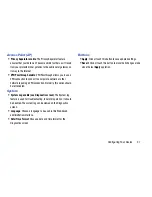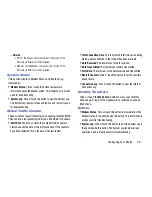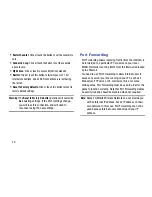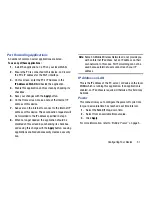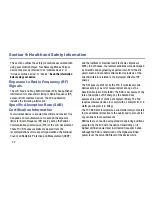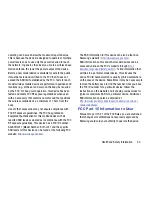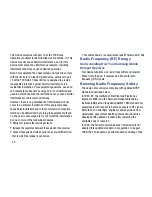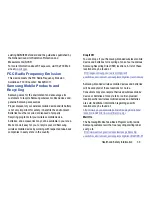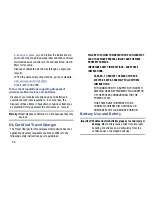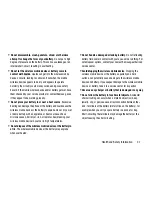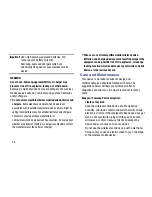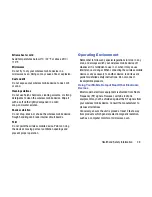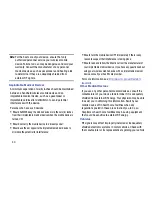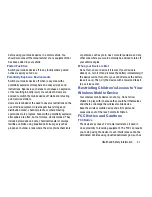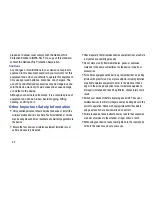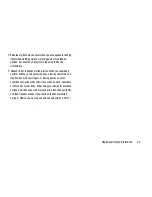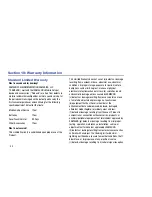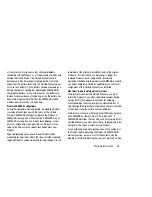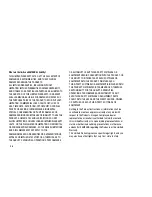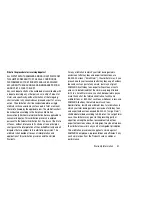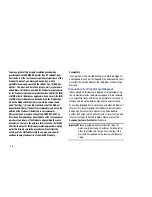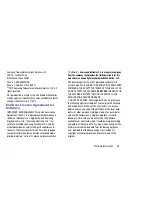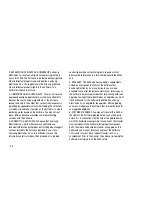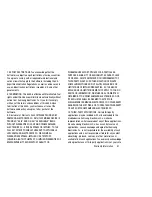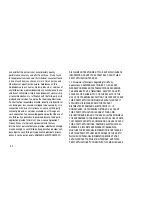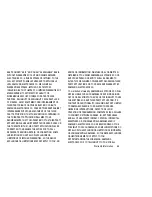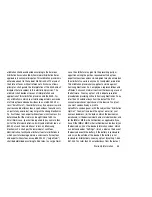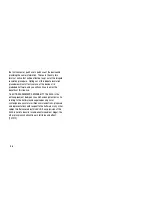
Health and Safety Information 41
before using your mobile device in a motor vehicle. You
should also consult the manufacturer of any equipment that
has been added to your vehicle.
Posted Facilities
Switch your mobile device off in any facility where posted
notices require you to do so.
Potentially Explosive Environments
Switch your mobile device off when in any area with a
potentially explosive atmosphere and obey all signs and
instructions. Sparks in such areas could cause an explosion
or fire resulting in bodily injury or even death. Users are
advised to switch the mobile device off while at a refueling
point (service station).
Users are reminded of the need to observe restrictions on the
use of radio equipment in fuel depots (fuel storage and
distribution areas), chemical plants, or where blasting
operations are in progress. Areas with a potentially explosive
atmosphere are often, but not always, clearly marked. They
include below deck on boats, chemical transfer or storage
facilities, vehicles using liquefied petroleum gas (such as
propane or butane), areas where the air contains chemicals
or particles, such as grain, dust, or metal powders, and any
other area where you would normally be advised to turn off
your vehicle engine.
When your Device is Wet
Do not turn on your device if it is wet. If your device is
already on, turn it off and remove the battery immediately (if
the device will not turn off or you cannot remove the battery,
leave it as-is). Then, dry the device with a towel and take it
to a service center.
Restricting Children's Access to Your
Wireless Mobile Device
Your wireless mobile device is not a toy. Do not allow
children to play with it because they could hurt themselves
and others or damage the wireless mobile device.
Keep the wireless mobile device and all its parts and
accessories out of the reach of small children.
FCC Notice and Cautions
FCC Notice
The device may cause TV or radio interference if used in
close proximity to receiving equipment. The FCC can require
you to stop using the device if such interference cannot be
eliminated. Vehicles using liquefied petroleum gas (such as

